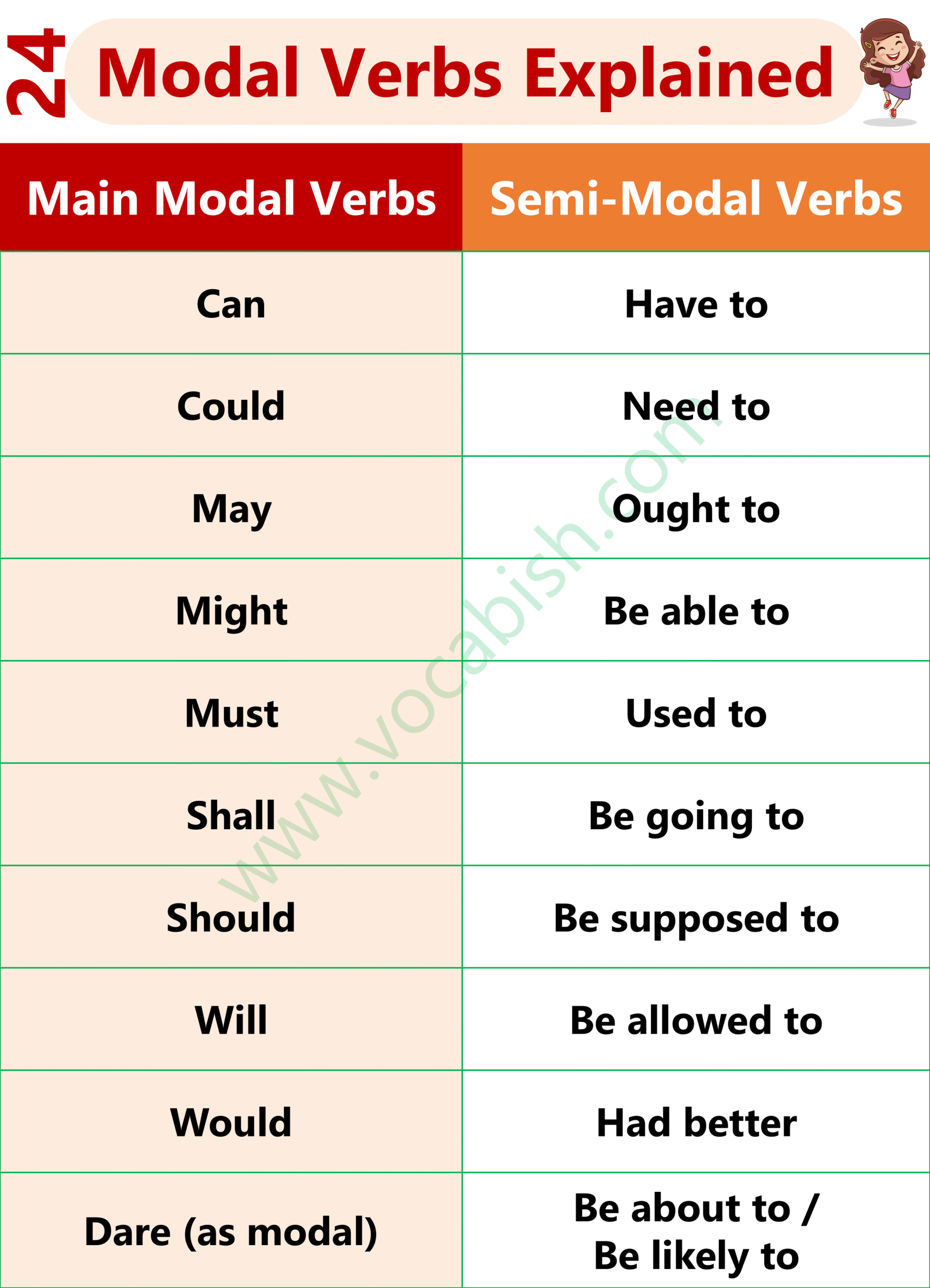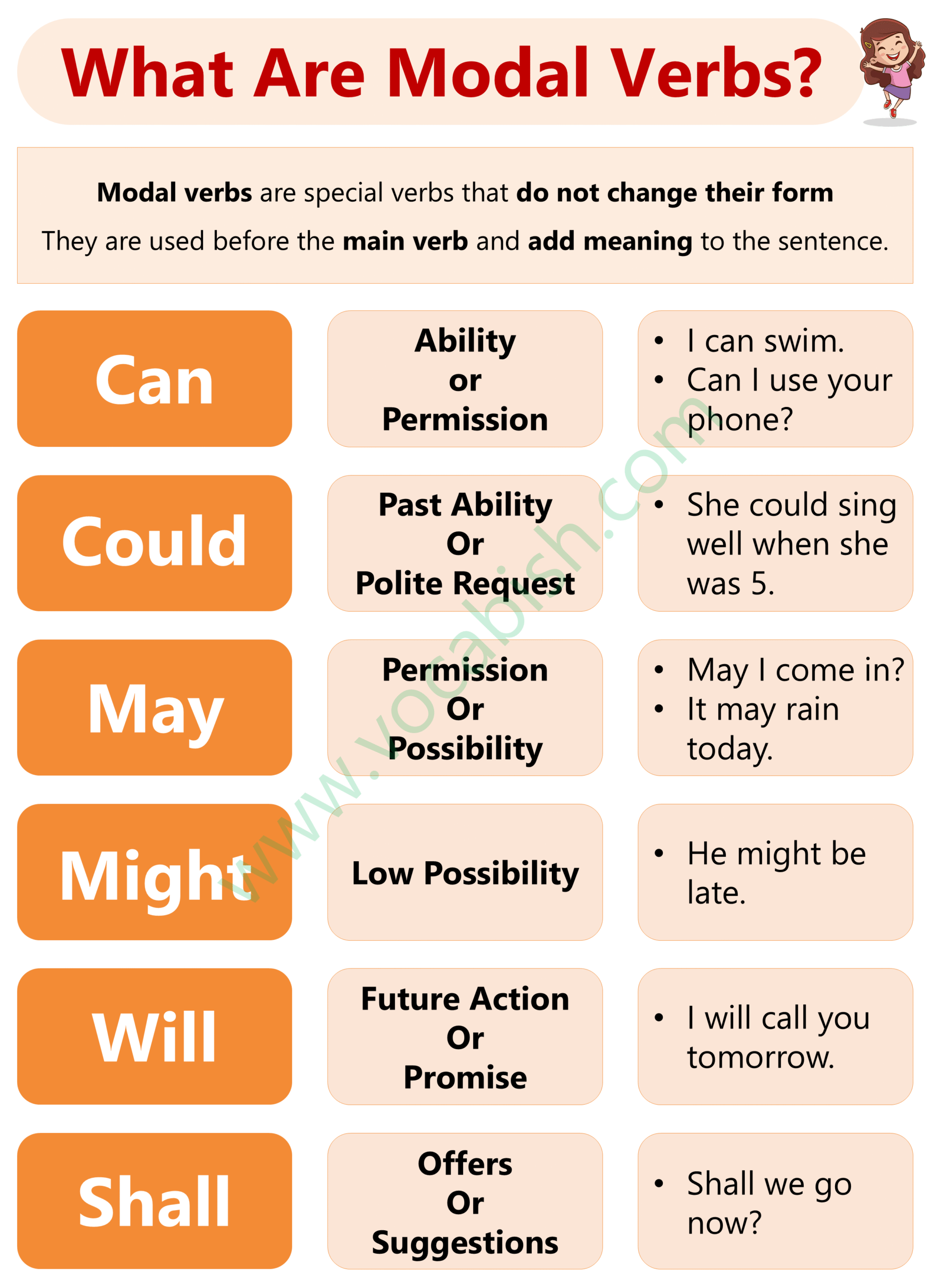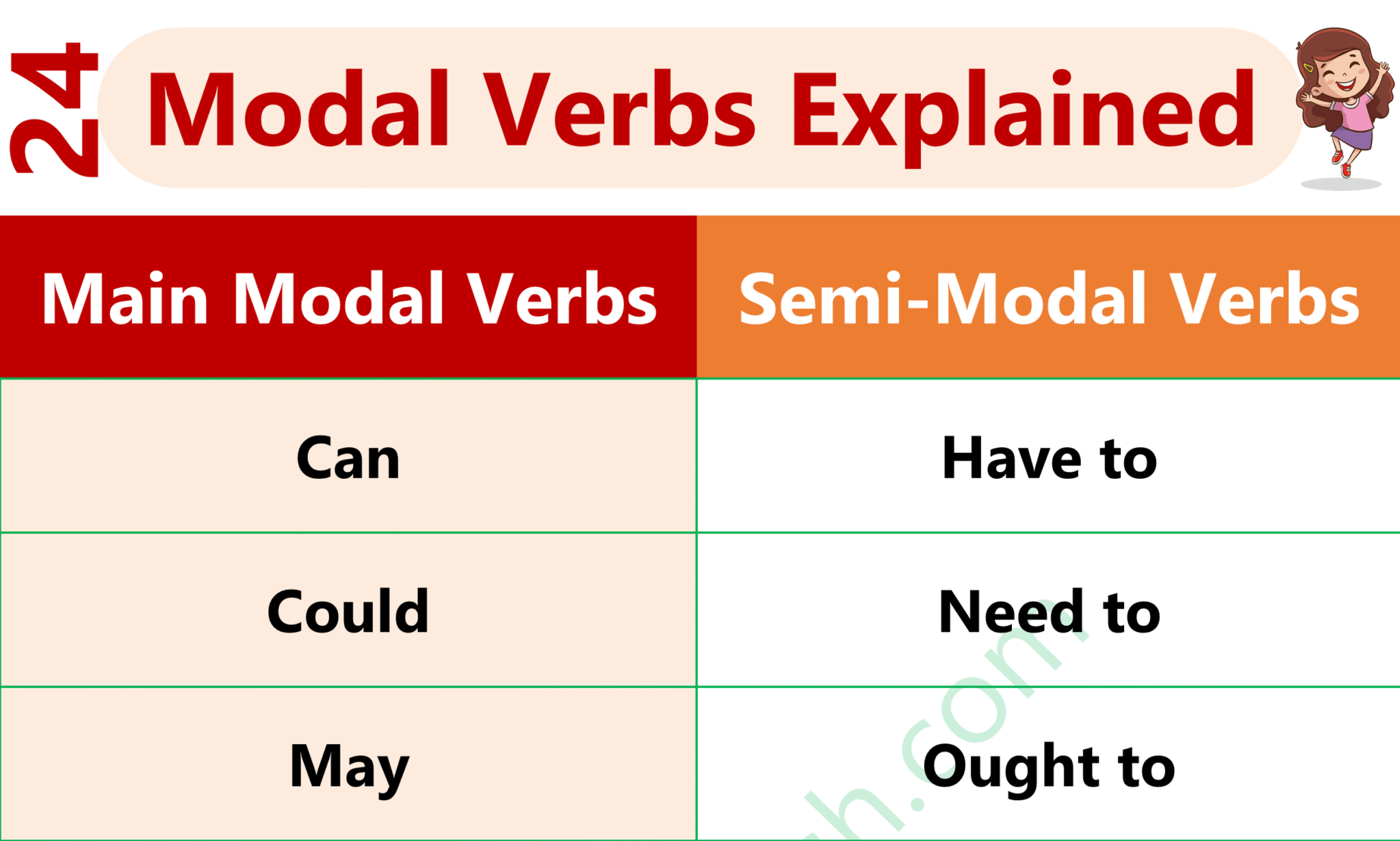Many English learners want to understand how to express ability, possibility, and permission correctly. Using Modal Verbs, learning the Rules, and practicing with Examples helps you speak and write more accurately. Modal verbs are an essential part of everyday English. They are used in speaking, writing, reading, and listening. In this blog post, you will learn the definition of modal verbs, their key rules, and easy examples for real-life use. This will help you speak with confidence and improve your grammar. With practical examples, you will see how modal verbs change meaning in different situations. Keep reading and build stronger English step by step.
What Are Modal Verbs?
Modal verbs are auxiliary (helping) verbs that express mood, ability, advice, necessity, or permission.
Examples:
- She can swim.
- You must go now.
List of 24 Modal Verbs in English
There are 10 main modal verbs, and 14 are called semi-modal verbs.
| Main Modal Verbs | Semi-Modal Verbs |
|---|---|
| Can | Have to |
| Could | Need to |
| May | Ought to |
| Might | Be able to |
| Must | Used to |
| Shall | Be going to |
| Should | Be supposed to |
| Will | Be allowed to |
| Would | Had better |
| Dare (as modal) | Be about to / Be likely to |

Usage of Modal Verbs with Examples
Use of Can
- Usage: To show ability or ask/give permission.
- Example: I can swim. / Can I use your phone?
Use of Could
- Usage: To talk about ability in the past or to make polite requests.
- Example: She could sing well when she was 5. / Could you help me?
Use of May
- Usage: To ask or give permission; to show possibility.
- Example: May I come in? / It may rain today.
Use of Might
- Usage: To show a small chance of something happening.
- Example: He might be late.
Use of Must
- Usage: To show something is necessary or required.
- Example: You must wear a seatbelt.
Use of Shall
- Usage: Mostly in formal English for offers or future actions.
- Example: Shall we go now?
Use of Should
- Usage: To give advice or suggest something.
- Example: You should drink more water.
Use of Will
- Usage: To talk about the future or make promises.
- Example: I will call you tomorrow.
Use of Would
- Usage: To make polite offers, requests, or talk about unreal situations.
- Example: Would you like some tea? / I would travel if I had money.
Use of Dare (as modal)
- Usage: To show boldness or challenge. Usually in negative or question forms.
- Example: How dare you speak like that? / Dare he go alone?

Modal Verbs Rules in Simple Words
Modal verbs are always followed by the base form of the verb.
Example: She can dance. (Not “can dances”)
Modal verbs do not take ‘s’, ‘ed’, or ‘ing’ forms.
Wrong: He cans go. ✅ Correct: He can go.
Do not use “do/does/did” with modals.
Wrong: Does she can go? ✅ Correct: Can she go?
Examples of Modal Verbs in Sentences
Here are some easy examples of modal verbs in use:
- Can—I can ride a bike.
- May—May I come in?
- Must—You must do your homework.
- Shall—Shall we start the meeting?
- Should—You should eat healthy food.
- Could—he could play piano when he was 5.
- Would—I would love to join the trip.
- Might—It might rain today.
- Will—She will call you tomorrow.
- Dare—Dare he say that to the teacher?
Modal Verbs – Practice Exercises
Try these to test yourself:
- I ___ go to the doctor. (should / can)
- She ___ swim very well. (can / must)
- ___ I borrow your pen? (Will / May)
- You ___ not smoke here. (must / can)
- He ___ play guitar when he was young. (could / may)
Answers:
- should
- can
- May
- must
- could
Modal Verbs Worksheet for Practice
Fill in the blanks with the correct modal verb (can, may, must, should, could):
| Sentence | Answer |
|---|---|
| You ___ finish your homework. | must |
| ___ I help you? | can |
| We ___ visit our grandma tomorrow. | may |
| He ___ not speak French. | cannot |
| You ___ try this new recipe. | should |
Modal Verb Examples Chart
| Modal | Meaning | Example |
|---|---|---|
| Can | Ability/Possibility | I can drive. |
| May | Permission | May I leave early? |
| Must | Obligation | You must wear a helmet. |
| Should | Advice | You should sleep early. |
| Will | Future | She will call later. |
Learning modal verbs is very important for speaking and writing in English. They help you say what you want in a clear and respectful way.
Read More


M.ishfaq..29..oman
M.ishfaq. 1993.20.11..30….00923013956359..3830229543905
M.ishfaq. 29….oman..please. 00923013956359..oman…thanks.. May have already
Very Good